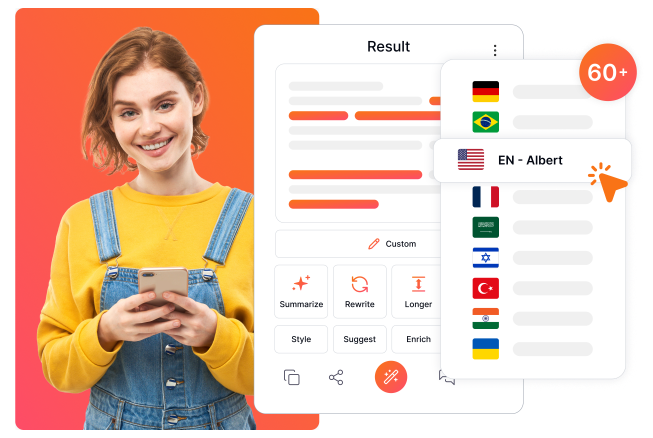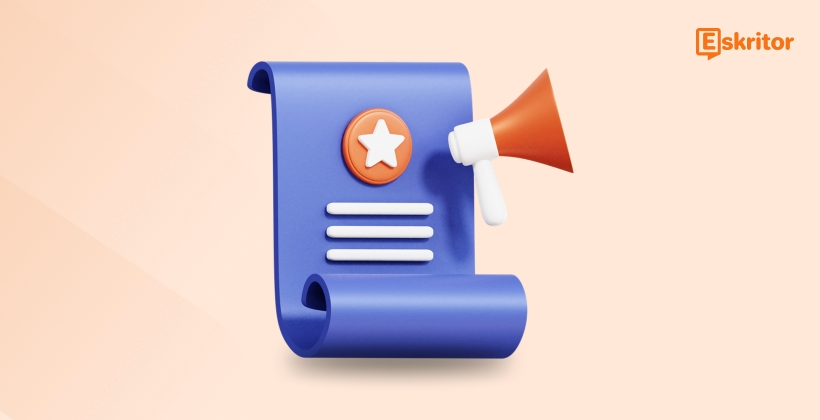The Future of AI Writing Technology Explained
The Future of AI Writing Technology Explained
Blog Article
AI Editing Features That Improve Your Writing Workflow
Synthetic intelligence (AI) publishing technology has evolved quickly over the past decade, reshaping the way we develop and communicate with written content. From grammar correction resources to AI-generated books, the number of choices appear limitless. But where exactly is this technology heading? Let's investigate the improvements, problems, and potential future of AI writer.

How AI Writing Engineering Performs Today
At their core, AI writing technology utilizes Organic Language Handling (NLP) and machine learning. These technologies allow types to understand, create, and increase individual language. Instruments available today do well at responsibilities like:
1. Content Generation
AI has achieved a spot where it can generate total website articles, social networking sayings, and also information articles. Some designs are capable of mimicking individual writing models therefore effectively that unique between AI- and human-written material is now increasingly difficult.
2. Grammar and Type Recommendation
AI-powered publishing personnel don't just always check for syntax and spelling errors; they also offer suggestions to enhance tone, quality, and sentence structure, creating complex writing available to a broad audience.
3. Message Evaluation
AI may examine the emotional tone of a piece, enabling companies to examine how their communications can resonate with readers. This really is specially of use in marketing and customer interaction.
The Current Traits in AI Writing Technology
A few trends are shaping another stage of AI-powered writing methods:
• Personalization
AI writing technology is increasingly effective at tailoring content to personal preferences. Versions may adapt to a user's publishing type, ensuring the productivity thinks authentic.
• Multilingual Functions
Several AI methods are expanding their worldwide reach by providing enhanced interpretation functions and support for numerous languages.
• Enhanced Study Features
AI resources today possess the capacity to analyze substantial amounts of knowledge and offer fact-checked, well-researched writing in moments, simplifying the procedure for specialists in industries like legislation, financing, and journalism.
What the Potential Supports for AI Writing Engineering
1. Increased Creativity
While current AI is successful at generating content, their creativity is still limited by habits within its teaching data. Potential AI is not only estimated to assist but to create original, topical operates that challenge human imagination.
2. Smooth Relationship
Imagine an AI that works along side you in real-time, finishing your phrases, conducting stay edits, and even brainstorming ideas. AI publishing instruments may soon become co-authors, enabling imagination to movement uninterrupted.
3. Honest and Available Design
With rising issue about plagiarism, misinformation, and prejudice, developers work toward more translucent AI education operations and honest implementation. Potential tools will more than likely present more comprehensive citations and measures to ensure accountability.
Problems and Considerations
The progress of AI publishing engineering isn't without hurdles, including:
• Honest Problems

Who possesses material developed by AI? How can we assure AI-generated content is not distributing misinformation? These debates stay unresolved.
• Human-AI Stability
Will AI complement human imagination or entirely change certain jobs? Many writers and musicians bother about their relevance in an AI-driven world.
• Availability Split
Not totally all organizations or parts have identical access to cutting-edge AI methods, increasing issues about the impact of the engineering on world wide inequality.
Changing the Way We Write
AI publishing technology is still in its infancy in comparison to its potential. Whether you are students creating documents, a material marketer targeting specific readers, or perhaps a novelist seeking motivation, AI instruments can continue to revolutionize the publishing process. The next decade promises breakthroughs that blend individual ingenuity with equipment intelligence, creating a future where publishing is more effective, available, and impactful than actually before.
Report this page